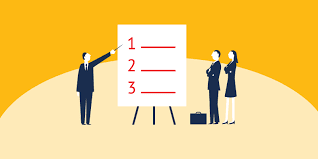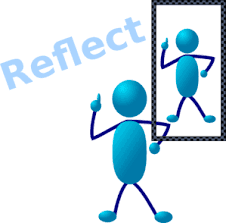Mark Twain once said "The secret to getting ahead is getting started" and it holds as true for Productivity as for anything else. Most of us compromise on remaining unproductive for our inability to start in the right manner.
If achieving productivity was that easy, then I wouldn't have felt the need to write this post/ article and you also would not have felt the need to read it. Productivity is not an impromptu or ad-hoc act of action but a process of deliberate intention and action.
If starting to get productive is a challenge, then staying productive is a bigger challenge. But one thing that can make it happen for us is to "PREPARE to be PRODUCTIVE" and it can't get any simpler than this to start (and sustain) our productivity journey.
Better Productivity comes with Better Preparation and Planning. The cues are always present to help us find whether we are on the right track or not. Here are three simple tips that will surely help us in starting productivity in the right manner.
1. Getting more mindful and observant about our routine. The more aware and attentive we are, the more productive we would get. Knowing what we are doing and why we are doing it is the cornerstone of productivity. Tracking how we tend to spend our day gives plenty of insights into what may be going wrong with our productivity.
2. Paying attention to the environmental triggers. Knowing what pushes us away or pulls us towards productivity helps us manage our approach better. There are plenty of small and big things that may impact our productivity and knowing what triggers them always helps us become more cautious and conscious of our actions.
3. Noticing our habits. The patterns we follow or exhibit say a lot about whether we are being rational or biased in our approach. Many times, our productivity takes a hit because we tend to operate out of our comfort zone and stop to look beyond the obvious. If it's time to change our habits for becoming better at productivity, then any further delay only leads to worsening the situation.
In the end, it's all boils down to finding out what's ailing your productivity and what's aiding it.
So, if you find yourself stuck, it's time to ask yourself - "What's stopping me from PREPARING (to be PRODUCTIVE)?
















